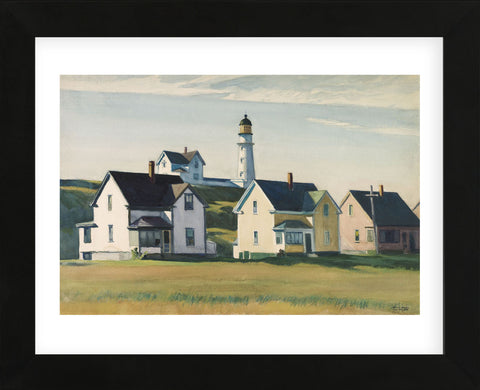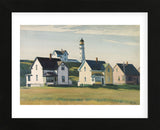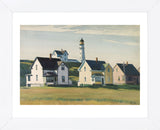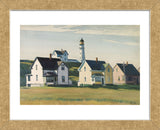Product Detail
- Overall: 16" H x 13" W x 0.75" D
- Overall Product Weight: 2.5lb.
- Material: Glass
- High-quality print on heavy paper
- Printed with vibrant, color-fast inks
- Framed in a contemporary style molding; available in black, gold, and white
- Sawtooth hanger
- Unmatted
© 2025
The Cleveland Museum of Art, Hinman B. Hurlbut Collection, 806.1960
Product Detail
- Overall: 13" H x 16" W x 0.75" D
- Overall Product Weight: 2.5lb.
- Material: Glass
- High quality print on heavy paper
- Printed with vibrant, color-fast inks
- Framed in a contemporary style molding; available in black, white, and gold
- Sawtooth hanger
- Unmatted
About the Artist
Edward Hopper (b. July 22, 1882, Nyack, N.Y., U.S. — d. May 15, 1967, New York, N.Y.) was an American painter. He was initially trained as an illustrator but later studied painting with Robert Henri. In 1913 he exhibited in the Armory Show but spent much of his time on advertising art and illustrative etchings. In the mid 1920s he turned to watercolours and oil paintings of urban life. His House by the Railroad (1925) and Room in Brooklyn (1932) depict still, anonymous figures within geometric building forms, producing the haunting sense of isolation that was to be his hallmark. He used light to isolate figures and objects, as in Early Sunday Morning (1930) and Nighthawks (1942). His mature style was already formed in the 1920s; his later development showed constant refinement and an even greater mastery of light.





